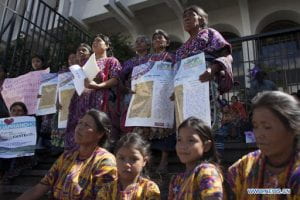POWER– the capacity or ability to direct or influence the behavior of others or the course of events.
Currently, there are close to 7.8 billion people populating our world. Out of those 7.8 billion individuals only 1% of the population owns more than half of the worlds wealth (Frank). Unfortunately, privilege seems to roll off the back of this 1% leaving the stench of power in its wake. And as unjust and absurd as our reality may seem, “liberation theologist” Ivone Gebara argues that the rest of the of population have become complacent to the patriarchal global capitalist system. Gebara goes on to explain that due to this cultural and economic globalization we have become, “people living without a social dream, without thinking and acting in a historical direction… we do not know who we are. we live as we live without the radical or tedious questions coming from feminist philosophers” thus we are invited “to forget these…questions that do not fit in a world of globalization” (Gebara 100). Sadly, this unequal distribution of economical power has lead to a growing number of marginalized people, in particular marginalized women. As we’ve learned through previous blog post a “females poverty depends on the destruction of ecosystems” (Gebara 96).
However, there are plenty of women world wide who are willing to fight for the creation of a new world/ utopia in which women and men can establish a harmonious relationship based on justice, equality, and solidarity in order to create a healthier earth. Feminist lead activism such as the 1973 Chipko movement organized to resist the destruction of the India forest, has inspired many. In particular, The Chipko movement showed as rural villagers (mostly women) linked hands “hugging” the trees to impede the loggers in a peaceful protest. More recently in the United States, Native American women in Dakota are leading the movement against the access pipeline which threaten to run through their sacred land and culture. As the backbone of every tribe and indigenous community the Native women in Dakota are bound to protect their people’s basic human right to clean water, while fighting against a history of misogyny, racism, and abuse by law enforcement (Levin).
Yet, Norther Native American women aren’t the only ones forced to protect their lands. Plenty of indigenous women are suffering at the hands of powerful companies, due to a long history of voilence. In countries like Guatemala the link between the destruction o f the environment and the destruction go indigenous population can be directly traced to the 16th century Spanish conquest of indigenous land, people, and resources. Due to the unequal distribution of land in Guatemala only a small number of elites own the vast majority of arable land leaving most of the indigenous population living in steep and rocky mountain slopes that are both dangerous to work and difficult to cultivate enough crops to feed one family let alone a whole community (Hallum-Montes 7). Within these highland communities women contribute between 21 and 30% of the total labor time needed to grow expert crops in addition to various task like meal preparation, collection of firewood, and water. As a result, Guatemala Indigenous women are leading the way in environmental awareness publicly addressing the soils loss of fertility, the increasingly unpredictable seasons, and the erratic rainfall.
f the environment and the destruction go indigenous population can be directly traced to the 16th century Spanish conquest of indigenous land, people, and resources. Due to the unequal distribution of land in Guatemala only a small number of elites own the vast majority of arable land leaving most of the indigenous population living in steep and rocky mountain slopes that are both dangerous to work and difficult to cultivate enough crops to feed one family let alone a whole community (Hallum-Montes 7). Within these highland communities women contribute between 21 and 30% of the total labor time needed to grow expert crops in addition to various task like meal preparation, collection of firewood, and water. As a result, Guatemala Indigenous women are leading the way in environmental awareness publicly addressing the soils loss of fertility, the increasingly unpredictable seasons, and the erratic rainfall.
It is important to keep in mind as active Ecofeminist to stay present. While rejecting the feeling of complacency and the idea that we can only save some instead of working to changing the whole system. We can no longer stand around an accept the problems that lay before us. Instead we must take action and reclaim our own power and intern return natures. 
Sources:
https://www.cnbc.com/2017/11/14/richest-1-percent-now-own-half-the-worlds-wealth.html
http://edugreen.teri.res.in/explore/forestry/chipko.htm
Hallum-Montes, R. (2012). “PARA EL BIEN COMÚN” INDIGENOUS WOMEN’S ENVIRONMENTAL ACTIVISM AND COMMUNITY CARE WORK IN GUATEMALA. Race, Gender & Class, 19(1/2), 104-130.
Gebara, I. (2003). Ecofeminism: A Latin American perspective. Cross Currents, 53(1), 93-103,142.
https://www.theguardian.com/us-news/2016/nov/04/dakota-access-pipeline-protest-standing-rock-women-police-abuse

Hi Angela, you had some really great thoughts this week and a very unique lens in which you were approaching everything. The first thing that really stood out to me was the quote you left at the end of your first paragraph, as it is the root of our conversation this week. I’m curious to your own interpretation of this quote and how it fits into the way you see the world. For me, I see women relying more on nature than men. We’ve seen this being fairly prominent in many of our topics throughout the semester. Especially in regard to environmental degradation. I think a great example of this is the article from this week “The Brazilian Slum Children Who Are Literally Swimming in Garbage”. We can see the pictured boy, who is being raised by his mother being directly affected by the damage done to the surrounding nature, or really the now lack of nature. I think if this semester has taught us anything it should be this; if it was men who were being as negatively affected by the damages to nature as women are, we wouldn’t be in a current crisis with our climate. I feel you may have the same interpretation I do, but with your unique thoughts surrounding this week’s conversation I’m curious to see if you may have more to add to my thoughts. Lastly, in your paragraph about how there are people, specifically women willing to fight for the needed change I think it’s important to mention Wangari Maathai and the work she has done within The Green Belt Movement. While the Chipko Movement fights in attempt to stop deforestation, The Green Belt Movement fights this front by planting – trees and organizing groups to do so. Both are equally important. If you haven’t already, I encourage you to explore Wangari Maathai’s site I think a lot of that information you could work into your discussion from this week. Great thoughts! Keep up the good work!